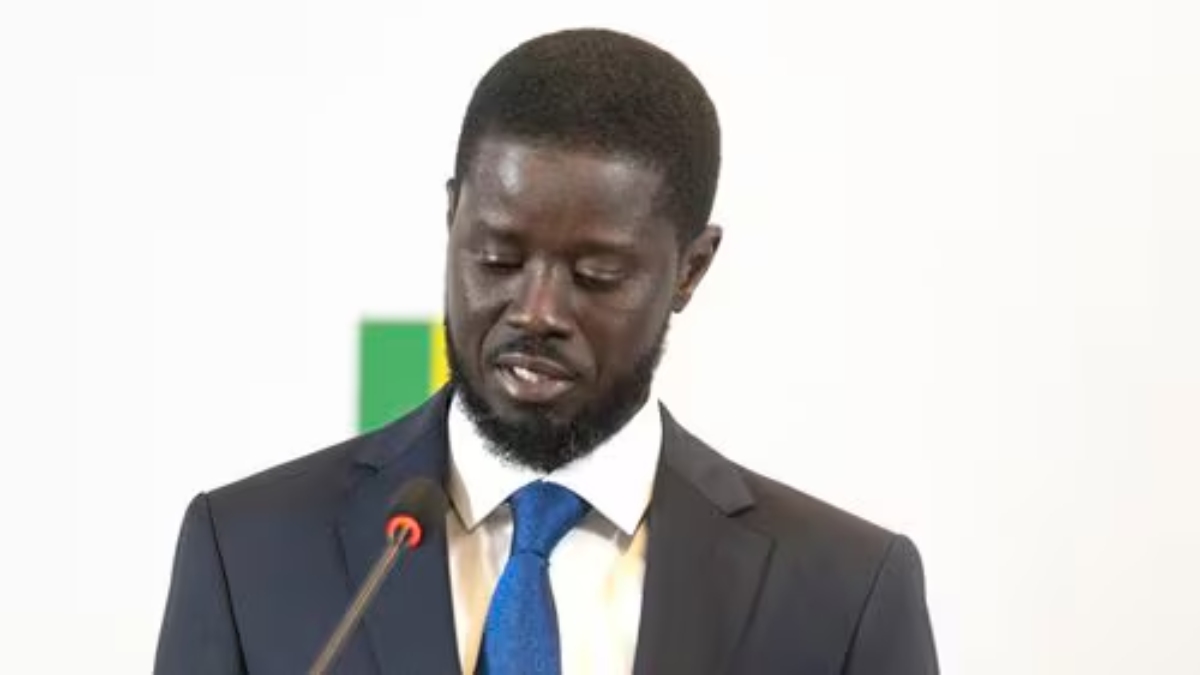Following what appears to be a landslide victory in Senegal’s Presidential elections, opposition leader Bassirou Diomaye Faye has become President-elect. He is set to be the youngest head of the state in the history of the West African country. In fact, Faye is also slated to become the youngest democratically elected leader of a nation in Africa’s history.
Here’s a look at who exactly Bassirou Diomaye Faye is.
Bassirou Diomaye Faye: A brief profile
Bassirou Diomaye Faye was founded by firebrand opposition leader Ousmane Sonko, himself a former tax inspector. Faye served as Sonko’s deputy and as the Secretary-General of the party.
Faye is a practicing Muslim who has two wives. According to his declaration of assets, he has a home in the capital city of Dakar. He also owns some land outside the capital and in his hometown. His bank accounts hold roughly $6,600.
How he came into the spotlight
Faye was a little-known opposition leader. However, the spotlight fell on him when Sonko named him as his heir. Sonko was barred from running for President by the court owing to a prior conviction. The now-dissolved Pastef party threw their weight behind Faye, saying that “supporting Faye is also supporting Ousmane Sonko.”
Within weeks of this announcement, Faye was arrested and jailed on various charges, including defamation. He alleged that these were politically motivated. Faye remained in jail till March 14.
Impact Shorts
More ShortsSonko and Faye’s arrests sparked widespread unrest and violence in Senegal. People were unhappy about outgoing President Macky Sall’s unsuccessful attempt to postpone the elections that were supposed to be held from February to December 2024.
Faye’s support base
Faye’s electoral win against the other frontrunner, former Prime Minister Amadou Ba who was backed by Sall, can be attributed to the support of Sonko and the Pastef party.
Another important factor that contributed to his victory was the frustration among youth with high unemployment. Around 60 per cent of Senegal’s population is under 25. Under Sall’s government, the unemployment rate was 20 per cent.
A long list of promises
The anti-establishment President-elect ran primarily on the promise of weeding out corruption, easing the cost-of-living crisis in the country, and rebuilding the institutions of Senegal. Faye has also vowed to improve Senegal’s control over its natural resources by promoting national companies. He has made clear his intention to renegotiate mining, gas, and oil contracts with foreign companies just as Senegal prepares for starting production on recently discovered oil and gas reserves.
Faye has promised left-wing pan-Africanism, too. His foreign policy priorities include reforming the troubled Economic Community of West African States (ECOWAS).
One of his main priorities as president will be “national reconciliation” following three years of unrest and a political crisis, Faye said.
With inputs from agencies


)

)
)
)
)
)
)
)
)



